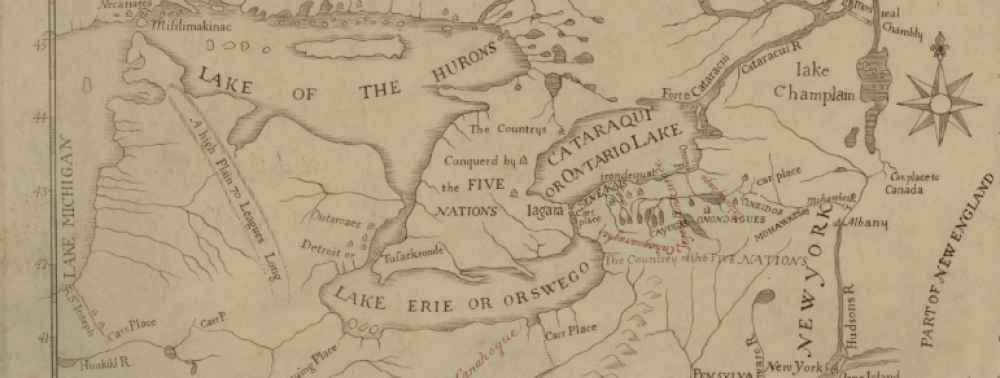The Race and Empire Caucus of the American Society for Eighteenth-Century Studies was founded in 2013. Our aim is to provide a forum for innovative critical approaches to eighteenth- century histories and legacies of imperialism, settler colonialism, and enslavement, especially those that continue to govern the world in which we live today. By promoting intellectual solidarity, community, and collaboration, we work to transform the field of eighteenth-century studies from a discipline that examines “the past” to one whose scholarship informs shared practices of anticolonial resistance and reinvention in the present.
Our Caucus recognizes the particular responsibilities that belong to scholars of the eighteenth century in the current historical and political moment. Universities, learned societies, and other academic institutions of the Euro-Western world have fostered crucial bodies of antiracist and anticolonial knowledge, but they remain nevertheless embedded in imperialist world-building projects—through funding legacies directly tied to enslavement and racial capitalism, through their situation on occupied Indigenous lands, and through their ongoing epistemic commitments to Eurocentric ways of knowing, to name just a few ways. As scholars working on the historical period in which these modes of violent world-building intensified and expanded to global proportions, we are committed both to studying the violent cultures of racialization, hyper- and hypo-sexualization, dispossession, extraction, religious oppression, and white supremacy that found purchase in the long eighteenth century, and to practicing our academic work and relations in ways that do not reproduce the dynamics of power bequeathed to us by these cultures.
We make this commitment as a matter of social and political urgency. The global movement for Black life and against police brutality and other forms of anti-Black violence has coincided over the past two years with numerous Indigenous land defense movements around the world and heightened attention to anti-Semitism, anti-Asian and anti-Latinx racisms, Islamophobia, and myriad other forms of racism that we witness in alarming resurgence. The confluence of war, climate emergency, and the COVID-19 pandemic have created brutal conditions for many people globally, conditions that disproportionately impoverish those who are already most vulnerable to harm, exploitation, and death under colonial social orders. Among these vulnerable populations are racialized peoples, refugees and migrants, and Indigenous peoples dispossessed of their territories. In our focus on the multiple histories of diaspora, geographical movement, and subject- and community-formation compelled by the expansion of British and European empires in the eighteenth century, we present this field of study as part of a political commitment to oppose such structural violences and injustices, and to generate the conditions within which decolonization is possible.
These conditions are both intellectual and material, and attending to them is a matter of ongoing collective practice. The Race and Empire Caucus cannot do this work on behalf of the Society as a whole, but it can provide models, guidance, and critical conversation to help ASECS and its members consider our shared responsibilities with regard to antiracist, anticolonial, and anti-
imperial commitments. To that end, we urge all members, and ASECS officers in particular, to attend to the following action items and best practices:
- Acknowledge the histories and realities of settler colonialism that condition the shared worlds in which we currently live and work, through self-education, through respectful and informed territorial acknowledgements at all meetings, and through building stronger relations with Indigenous knowledge communities.
- Acknowledge the relative paucity of Black, Indigenous, and racialized people currently belonging to ASECS, and commit to considering the confluence of historical and ideological forces that have allowed whiteness to be reproduced among our Society’s ranks despite concerted efforts among many members and caucuses to make ASECS a more “inclusive” and “diverse” body. This commitment entails an engagement with critiques of “diversity and inclusion” models offered by numerous BIPOC and ethnoreligious knowledge communities, as inadequate to the task of antiracist and anticolonial transformation.
- Address the structural ways that uneven distributions of power and vulnerability to harm and abuse are reproduced through particular epistemologies and the scholarship they inform; through the structures and procedures by which Society leadership is selected; through programming and panel design; and through reviewing, editing, and publishing practices. Commit to changing the Society’s structures and practices as necessary in order not to reproduce white supremacy, colonial extraction, and other modes of structural violence in our ways of thinking together across difference.
- Prioritize the insights and recommendations made by the DEIA committee and caucuses representing particular knowledge communities historically marginalized within Euro- Western academic cultures as we come together to address these issues. Commit collectively to protect scholars working in these areas against retaliation and reprisal. The Race and Empire Caucus urges our fellow ASECS members to join us in these efforts toward structural and cultural change as part of our own commitment to ASECS as an organization and Eighteenth-Century Studies as a field of knowledge and scholarly practices. We believe that the future of this field depends on our collective ability to reckon with the legacies of imperialism, racism, and diaspora that have defined life for centuries, including the 21st century. As a Caucus, we are prepared to help ASECS members learn to position themselves effectively and ethically within the critical movements and conversations already underway, and to learn to ask searching and rigorous questions within critical frameworks of race and empire.
About The Caucus
Since 2014, the Race and Empire Caucus has sponsored two guaranteed panels at every ASECS annual meeting.
The Caucus also awards an annual Graduate Student Paper Prize for the best paper presented at an ASECS national or regional meeting on the topics of race and empire.
There is no formal process for joining the Caucus—all who are interested are invited to attend our annual business meeting at ASECS, and to join our mailing list for news, updates, and CFPs. Welcome!
